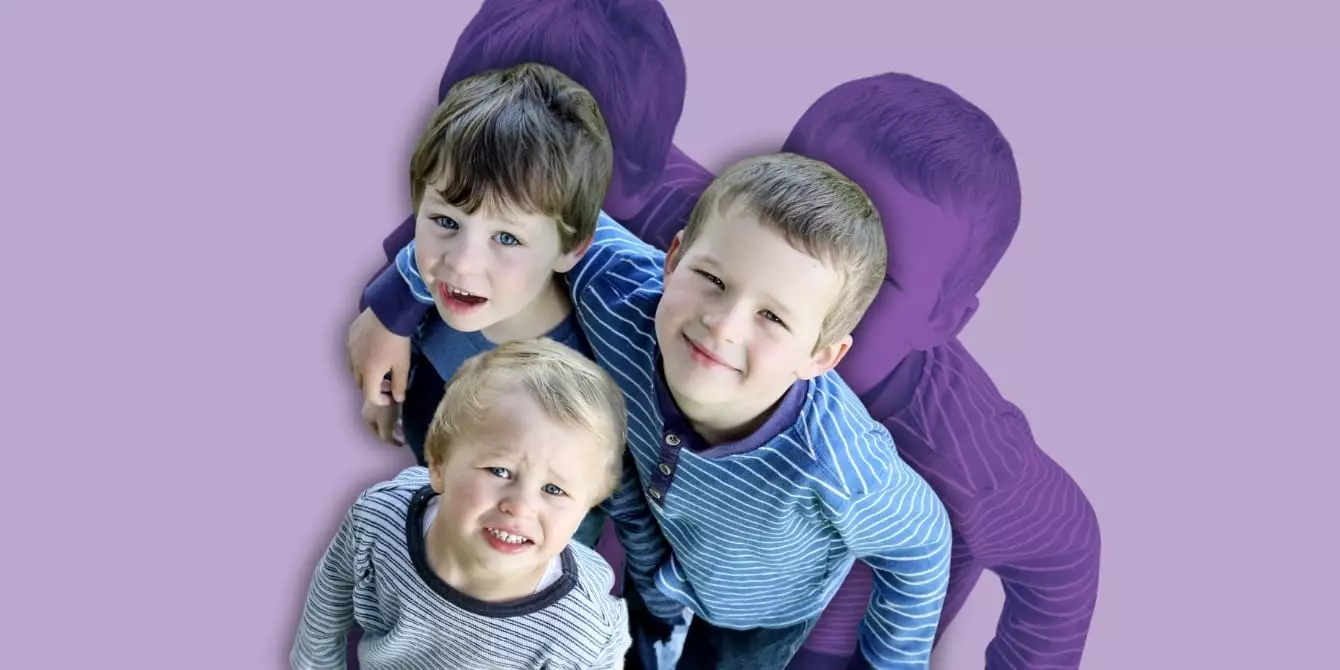Family dynamics have long been a topic of interest in psychology, particularly their influence on personality development. A recent study published in the Proceedings of the National Academy of Sciences (PNAS) in December 2024 has brought new insights into this discourse, asserting that both birth order and the size of one’s family significantly shape individual personality traits. With a sample size exceeding 700,000 participants, the study sets out to uncover how these familial structures contribute to qualities like kindness, cooperation, and emotional openness.
The Role of Middle Children
One of the most compelling findings of the research highlights the unique traits of middle children. According to the study, middle-born siblings tend to exhibit a stronger inclination towards kindness and cooperation compared to their older and younger counterparts. This is attributed to the inherent role they play within their families as mediators and peacemakers. Often sandwiched between their siblings, middle children cultivate negotiation skills that foster empathy and collaboration. This insight challenges the stereotype of middle children being overlooked or neglected and emphasizes their vital contributions to family harmony.
The analysis further reveals that family size wields a considerable influence on psychological development. Participants from larger families, specifically those with six or more children, displayed heightened levels of kindness and humility, traits that are essential for developing robust social relationships. This could be interpreted as a result of the shared experiences that come with growing up in a bustling household, where cooperation and altruism are essential for coexisting with multiple siblings. In contrast, individuals from smaller or single-child families showed a preference for autonomy and personal initiative, reflected by their slightly elevated scores in openness to new experiences.
When examining the differences among siblings within families of similar sizes, the study found that firstborn children often score lower in kindness and humility compared to their younger siblings. This observation raises intriguing questions about familial roles and expectations; firstborns frequently assume leadership positions and responsibilities that might condition them to prioritize independence over social cooperation. While their struggle for attention and validation might foster competitiveness, they also exhibit a greater propensity for exploration and intellectual curiosity, highlighting a nuanced bifurcation of personality traits influenced by their standing within the family hierarchy.
The study also emphasized the significance of shared experiences—ranging from familial traditions to collective activities in shaping personality. These cooperative environments cultivate essential social skills, fostering traits like empathy and compassion, which are vital for personal growth. Notably, religious upbringing emerged as a significant contributor to nurturing kindness and selflessness, illustrating how values instilled by familial practices can leave a lasting imprint on personality development. This finding underscores the importance of creating environments that prioritize collaboration and support, regardless of family size.
Methodology and Credibility of Findings
Notably, the study utilized the HEXACO personality model, measuring six dimensions: Honesty-Humility, Emotionality, Extraversion, Agreeableness, Conscientiousness, and Openness. This detailed approach provided the researchers with richer, more nuanced insights than prior models, which often oversimplified personality assessments. Furthermore, the diversity of the sample—spanning various English-speaking nations—affords a broad perspective on personality development and family dynamics. This comprehensive methodology enhances the credibility of the research findings and their implications for understanding familial influence on personal traits.
The findings of this expansive study illuminate the intricate ways family structures shape individuals’ personalities. As parents, understanding the implications of birth order and family size can help foster an environment conducive to cooperation, kindness, and emotional intelligence among children. Encouraging collaboration and mutual support, regardless of the number of siblings, serves as a foundation for lifelong development of empathy and resilience. Ultimately, nurturing these qualities in children can help them evolve into compassionate adults, equipped to navigate the complexities of interpersonal relationships.

